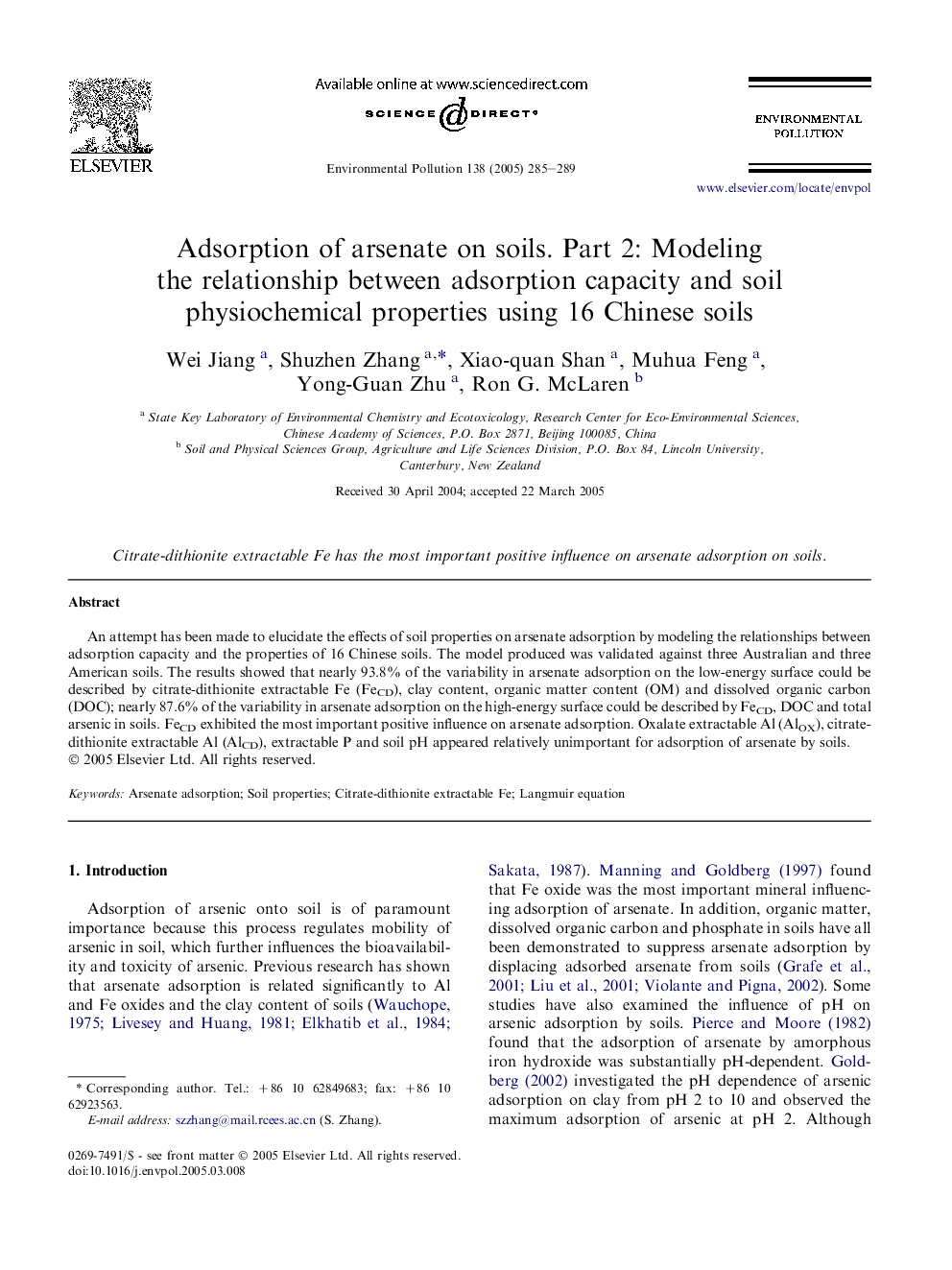| Article ID | Journal | Published Year | Pages | File Type |
|---|---|---|---|---|
| 9456150 | Environmental Pollution | 2005 | 5 Pages |
Abstract
An attempt has been made to elucidate the effects of soil properties on arsenate adsorption by modeling the relationships between adsorption capacity and the properties of 16 Chinese soils. The model produced was validated against three Australian and three American soils. The results showed that nearly 93.8% of the variability in arsenate adsorption on the low-energy surface could be described by citrate-dithionite extractable Fe (FeCD), clay content, organic matter content (OM) and dissolved organic carbon (DOC); nearly 87.6% of the variability in arsenate adsorption on the high-energy surface could be described by FeCD, DOC and total arsenic in soils. FeCD exhibited the most important positive influence on arsenate adsorption. Oxalate extractable Al (AlOX), citrate-dithionite extractable Al (AlCD), extractable P and soil pH appeared relatively unimportant for adsorption of arsenate by soils.
Related Topics
Life Sciences
Environmental Science
Environmental Chemistry
Authors
Wei Jiang, Shuzhen Zhang, Xiao-quan Shan, Muhua Feng, Yong-Guan Zhu, Ron G. McLaren,
